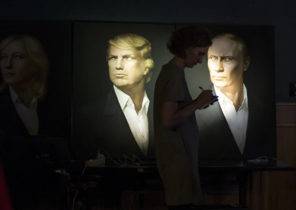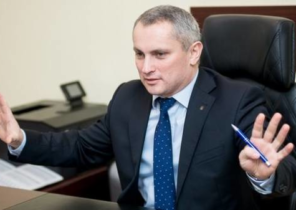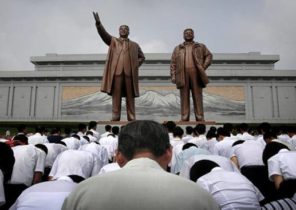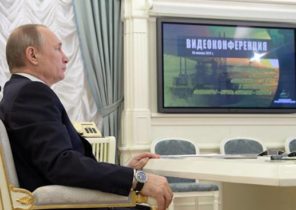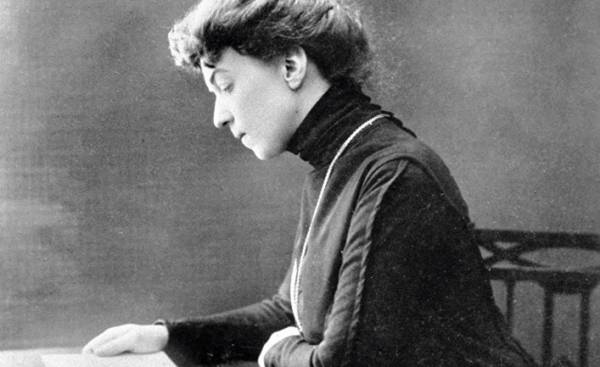
“I’m still not all done on this planet that I wanted, so not going to disappear, like the smallest atom in the universe,” wrote Alexandra Kollontai shortly before his death on 9 March 1952. After a few days she would have turned 80 years old. Courageous, principled and passionate, Alexandra Kollontai was the only woman in Lenin’s government and one of the most famous women in Russian history, the history of the revolution. A passionate defender of true ideals, she knew that in itself the revolution was not enough. For the present political upheaval required changes in personal and family relationships.
No one is better she did not understand the conflict between Love and Work. Her life, personal and political, has always been stormy. She was a brilliant thinker, writer, organizer, debater, negotiator and many others throughout his long life and was always unswervingly loyal to those whom they loved and respected. Her ideas remain as important now as in life. She was a revolutionary, post-Revolution, became such, about which she dreamed, and her experience and thoughts, her life — inspire, and her work is very valuable.
Despite the fact that today it is recognized the pioneer and one of the Central figures of the revolution, her works for many years it was very difficult to access, and its value as a feminist and socialist pioneer, was little known to the majority of activists of women’s movement. This changed when in 1960-70-ies was formed and raised the socialist women’s movement. Was released new edition of her works, and the new generation of women and men had the opportunity to read the novel “Love labor of bees,” her most famous work “the Situation of women in the evolution of the economy” and other works that explore and discuss the problem of how the life of a woman looked in the course of history, looks now and will look in the future society, where everything will change, socialism, and even love will change for the better.
Alexandra Kollontai was born in 1872, but the priest was drunk and christened her Alexander. Already then it was clear to her that the king must be overthrown, and she admired those who organized the attacks and raised the riots, and dreamed about the life of revolutionary and freedom fighter. Her parents were horrified and a few times I hide it for fear that the prison will send the father. Neither little girls nor girls were not supposed to go, and looking out the kitchen window she saw the slums and poverty that never improved. She snuck out into the street and was making friends among the children, many of whom were from very poor families. In the years 1877-78 were sensational trials after the terrorist attacks against the Russian officials. In 1881 the attack was killed the king, which led to the trial of six members of the people’s will, who wanted to spur the resistance of the people through terrorist acts (individual terror) and all were hanged.
The new Tsar Alexander III was strongly opposed to reform, repression grew, the secret police were everywhere, there were constant arrests. Everywhere in Russia, everything was seething and worried.
Alexander learned five languages, I read mostly about rationality and mind, but felt locked and secured, dreaming about freedom and about to start writing. She met a young officer, Kollontai, and fell in love. However, her frightened parents saw that Alexander was attracted to is not knowledge, but rather that she was beautiful. He wanted to have a pretty wife. In the hope that Alexander will change his mind, the family went to Paris and Berlin, where Alexander finally got in touch with those thoughts that will determine her future life. She read the Communist Manifesto by Karl Marx and Friedrich Engels, and August Bebel (August Bebel, the German socialist who wrote, including the book “Woman and socialism”), utopian socialists — all found! She went to the meeting, the German Social Democrats (SPD) and even became their member. Lenin, who was then 23 years old, created the first circles in St Petersburg. Trapped and bored, pregnant, and then with a small child, Alexandra sat at home and tried to write, but then found an outlet, conducting evening classes for workers, it is very fascinated.
She became more politically active, and when Lenin in 1895, joined clubs and was under arrest, she was among those who delivered secret letters and was at risk to suffer the same fate.
In 1896, a strike began among workers in a textile factory, which was attended by 30,000 people. The strike was led by “Union of struggle for the emancipation of the working class”, Lenin created in 1895 as the first Marxist revolutionary organization in Russia. Kollontai actively took part in it, organizing a strike Fund and distributed leaflets. “This is an example of the growing consciousness of the enslaved and completely powerless people made me even more determined to join the Marxist camp.”
In 1898 was founded the Marxist Russian social democratic labour party and Kollontai became a member. In the same year was established the Socialist international (Second international). Alexander left her husband and son to study Marxist Economics in Zurich, is well aware that her marriage is on the verge of collapse. The son was four years old. She wrote her first article about Finland and nationality and became more active, engage in public debate (against Nietzsche), wrote a book about the Finnish workers, traveled a lot, agitated, still organized evening courses. Lenin was asked to help with the newspaper “Pravda”, Alexander joined the Bolshevik party and taught the workers to Marxism.
Bloody Sunday in 1905, thousands of unarmed peaceful demonstrators were killed by the tsarist police. 140 000 workers appealed to the king for help. At the Winter Palace, the king’s troops hit on the crowd. Kollontai participated in the protests and wrote pamphlets in support of the movement for the overthrow of the king. The revolution was gaining momentum. It has been organizing, campaigning, participated in meetings and protests. Created tips, and Alexander was their member. The king has promised reform, but then suppressed mass protests.
She participated in the first liberal feminist meetings, but argued against the idea of global Sisterhood. Women with completely opposite interests will not be able to unite in one movement, she argued.
“You say that all women are sisters. But the liberation of the working women concerns the whole working class and not just women. Only together with the workers working woman can fight for a life where she will be free to choose a profession, to devote themselves to motherhood, to serve society and science so that the free desire of the heart will not be hurt, adjusting to the prejudices and benefits of the masters of the capitalists.”
She organized the workers in the factory and created the first legal club of working women in St. Petersburg in 1907. In 1908 she wrote in the essay “On women” on how socialists relate to the women’s movement, ahead of a planned national feminist Congress in Russia. She was arrested for her work, because she was a member of the party and that called for an armed uprising against the king. She was in prison, and then was forced to leave the country, like other socialists at the time. She went to Berlin, campaigned to join the German SPD and went along with Clara Zetkin, including in London.
Those who heard, as she says, this will never forget! She was a born orator, passionate, witty, original, and inspiring. Her speech was very popular and she was invited to many countries on different collections. During the trips, she continued to work on my future books about sexuality and motherhood, revolutionary and inspiring. She collected money for Russian in exile who lived in Paris, met with the miners and publishes his first articles about sexuality.
In 1914 she organized a women’s meeting in Berlin, on the eve of the war, risking to be arrested, she planned an international women’s conference in Tyrol. When in August 1914 war broke out, she was arrested and sent to jail, but then released, and she went to Denmark and Sweden.
When the first world war, all social-democratic party, as well as the women’s movement split. Alexander supported the Bolsheviks who opposed the war, and it was arrested again. She has maintained contact with Lenin. In the spring of 1915, the defeat of Russia was a fact, but the war continued. Alexander wrote a pamphlet, which was distributed among the soldiers in the trenches: Who wants war?
She was invited to the USA, and it took his 14-year-old son. At the same time were published her book “Society and motherhood”. She wrote about how child care should be partially imposed on society through kindergartens, school canteens and collective cooking, for example. When in Russia the revolution broke out, she urgently wanted to get home. Lenin’s letter with an appeal to all socialists in exile to return home she took, and then it was published in “Pravda”.
She rushed headlong into the revolution, campaigned, became a member of the Council of the Petrograd led a strike of four thousand laundresses, wrote for the Newspapers “Pravda” and “Worker”, traveled to Finland to carry out there campaigning, but was arrested by the Kerensky government as a “German agent”. While she was in prison, she was elected to the Central Committee of the Bolsheviks. When she was released, she proposed to create a Department of women’s Affairs, has planned a women’s Congress in Petrograd and participated in the historic meeting at which the Bolsheviks took the decision on carrying out of the socialist uprising against the government.
When the workers and the poor seized power in October 1917, Alexandra Kollontai became people’s Commissar of public charity. It is called the greatest moment of his life the day when was proclaimed the Soviet power.
Ahead there was a time not only of words but also of action, lots of things to do to organize.
Bulk of practical tasks, and she eagerly took the case and fought. Food to orphans, care for the elderly, schools, firewood in winter, everything needed to take care of: “It was hot, daring the months of our revolution. We were constantly hungry, rarely couldn sleep all night, but we worked enthusiastically, we took the time to build a new life. We felt that everything we did would be done now, even if half — tomorrow will be too late, there will be new challenges”.
A decree was issued which called on all to work to create organizations to help children and mothers. Throughout Russia were created orphanages, care centres for children, courses for women who could work in these institutions. At the initiative of Alexandra Kollontai was powered by a number of new laws to protect the interests of women and children. Absolute equality of spouses, equal rights for children born in marriage and outside of marriage, a leave for reason of childbirth and maternity allowance.
Alexander Kollontai work was inspired by the power of love, and she wrote about how love will change in a new society where it will not be to cut the wings, as in the bourgeois, hypocritical society where women are forced into marriage or prostitution, where she will be free, like the “Winged Eros” is one of its most famous works, written in the form of a letter to a young working woman, filled with optimism and hope. The love that inspires you to get out of the house and be active, making the world a better, friendly love on different grounds, hot passion, which is not trying to hold to what does not force.
The revolution with its war, external threats and difficulties, shortage of food and firewood, visions and ideas that lit the way, in retrospect we see how her ideal face the reality. But she never stopped hoping, never stopped working towards building a new society where women and men were free and equal. In 1945, Alexander Kollontai was nominated for the Nobel peace Prize.

